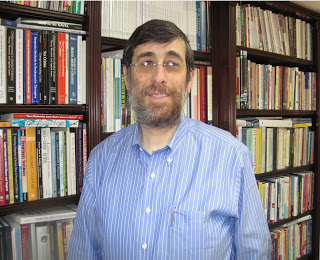www.thesuburban.com
“Focusing on something so gory about a person’s death basically does not respect the victim,” forensic child psychologist Dr. Abe Worenklein told The Suburban. “You simply don’t show it—and that applies to anybody.”
Dr. Worenklein, who practices in Dollard des Ormeaux and Outremont and frequently testifies as an expert witness throughout North America and overseas, was concerned after reading reports that a teacher at Cavalier de LaSalle High School screened an internet video which allegedly depicts graphic scenes of the highly publicized murder of Concordia student Jun Lin.
“Why did the perpetrator put it on the Internet?” Dr. Worenklein asked rhetorically. “To get attention. What is this teacher doing? He is basically feeding in to what the perpetrator wanted.”
“A teacher is a role model for students,” he continued. “I know that [students interviewed by] CBC said that [viewing the video] didn’t affect them. In my mind, if it didn’t affect them at all, it shows that there is a problem.”
“I would hope that watching a video like that would affect them. Not in a traumatic type of way. Even if it was for them to say that it was disgusting, that this guy was a nut case and that they feel very bad for family of victim in terms of this being posted on Internet and so forth.”
“So the judgment was very, very poor,” explained Dr. Worenklein. “These students were a captive audience and, so far as I’m concerned, showing the perpetrator’s video only fed into his craving for fame, basically reinforcing what he did.”
“I don’t want students to become desensitized to what they saw because the violence was shown in such detail,” he emphasized.
So what ought to be done, The Suburban asked Dr. Worenklein.
“Speak to the kids,” he urged. “Ask them how felt about seeing it. Ask them how felt about perpetrator. Do they think the perpetrator was normal? What do they think about perpetrator putting this on Internet just to get attention?”
“More than that,” he stressed,” ask them: How do you think [Jun Lin’s] family feels? How did you feel when you saw this? How do you think it affected the family to see this on the Internet? How does it affect the family to know that it’s on the Internet and that everyone can see it? Do you think that it respects the victim? Should this have been placed in Internet? Should they have accepted this? Should they have taken it off?”
“In other words, get the students to verbalize their feelings about it and also
Dr. Worenklein suggested that parents who observe changes in their child’s behaviour of disposition as a result of such exposure should consult a mental health expert such as a school guidance counselor, for example.
What should parents be on the lookout for?
“It depends on extent of it,” reassured Dr. Worenklein, “whether it is temporary or something that needs to be looked at.”
“If they have an extremely sensitive child or if they see their child becoming very, very sad as result; if the child reports that he or she can’t help but visualize what happened, has flashbacks or becomes more security conscious, then the parents should get the child some help.”
According to Dollard des Ormeaux forensic child psychologist Dr. Abe Worenklein, screening graphic death scenes can harm students—even if they say it doesn’t.

